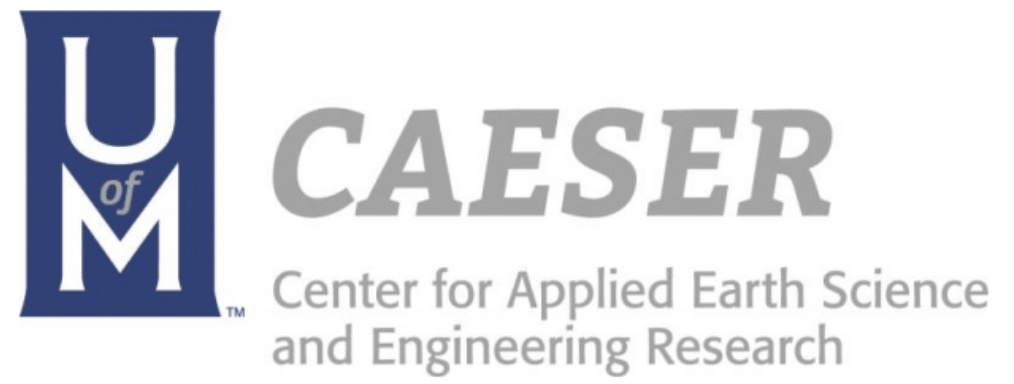VIP Teams
The VIP Program provides an opportunity for students at all levels to perform collaborative research as part of a team, led by UofM faculty, and at the same time receive credit through enrollment in courses. These projects and the experience gained will provide students, at all levels, with new skills and knowledge within that field.
(all provided links open in a new window.)
VIP Teams available
For more information about a VIP team please contact the Faculty Team Leader.
1. Making the invisible visible: Engineering microscopes with deep learning
Faculty VIP Team leader: Dr. Chrysanthe Preza (cpreza@memphis.edu)
Experience students will gain:
- Understanding concepts in imaging techniques and imaging systems.
- Visualizing and manipulating 3D images.
- Collecting data using a microscope.
- Processing data using available software.
- Developing programming skills.
- Conducting simulations and data analysis.
- Understanding fundamental concepts in deep learning.
- Improving technical writing and presentation skills.
2. Integrating Social Media, Big Data, and other Innovations to Assess Community Livabilty
Faculty VIP Team leader: Dr. Stephanie Ivey (ssalyers@memphis.edu)
Experience students will gain:
- Understanding factors influencing community livability.
- Spatial analysis skills.
- Analysis of big data.
- Sentiment and linguistic analyses.
- Developing new assessment frameworks.
3. Making Sense of a Big World: Autonomous Sensing for Large Area Situational Awareness
Faculty VIP Team leader: Dr. Eddie Jacobs (eljacobs@memphis.edu)
Experience students will gain:
- Introduction to the concepts of remote sensing and sensing technologies.
- Using and developing Geographic Information Systems and Navigation/GPS.
- Using models and simulations to design and analyze remote sensing scenarios.
- Collecting remotely sensed data for agricultural, environmental, or military applications using sensors on small uncrewed arial systems (sUAS) aka drones.
- Development of deep learning and machine learning algorithms for automatic analysis of data.
4. Winning the War on Bugs: Design of Antimicrobial Materials for Biomedical Applications
Faculty VIP Team leader: Dr. Jessica Amber Jennings (jjnnings@memphis.edu)
Experience students will gain:
- Understanding concepts in chemical synthesis and material fabrication.
- Performing microbiological evaluation using laboratory equipment.
- Performing cell culture assays using laboratory equipment.
- Performing data analysis using available software.
- Improving technical writing and presentation skills.
5. Organizing chaos: Understanding turbulence in large-scale applications
Faculty VIP Team leader: Dr. Daniel Foti (dvfoti@memphis.edu)
Experience students will gain:
- Understanding of turbulence and fluid dynamics.
- How to analyze large quantities of data (big data).
- Programming, Linux, and scripting skills.
- Experience with high performance computing.
- Concepts in numerical methods and machine learning.
- Skills with processing grids and data with software.
- Experience with data visualization and written and oral communication.
6. Revealing Brain Operation: Functional Ultrasound Imaging in 3D
Faculty VIP Team leader: Dr. Carl Herickhoff (chrckhff@memphis.edu)
Experience students will gain:
- Understanding how medical images are acquired and recontstructed
- Improving coding skills for ultrasound pulse and beam simulations
- 3D scanning, CAD designing, and 3D-printing custom probe fixtures
- Taking experimental ultrasound measurements and images
- Analyzing data (from hydrophone, impedance analyzer, & scanner) to compare methods
- Applying machine learning methods to accelerate outputs
- Problem-solving and creating new hardware and algorithm solutions
- Improving communication skills (writing and speaking/presenting)
For more information about a VIP team please contact the Faculty Team Leader.
7. Guardians of the Planet: Monitoring Environmental Impacts and Investigating Air-Soil-Water Systems Pollution
Faculty VIP Team leader: Dr. Farhad Jazaei (fjazaei@memphis.edu)
Experience students will gain:
- Microplastic Pollution Research: Gain hands-on experience in studying the sources, movement, and impacts of microplastics in air, water, and soil systems.
- Fieldwork and Data Collection: Participate in environmental sampling, such as rainfall runoff and infiltration studies, to understand real-world pollution pathways.
- Lab Analysis Techniques: Learn advanced laboratory methods to identify and quantify microplastics in various environmental samples.
- Environmental Modeling: Use simulation tools to model how microplastics are transported in urban environments and predict pollution trends.
- Sustainability Solutions: Contribute to developing innovative strategies for mitigating plastic pollution and its impact on ecosystems.
- Interdisciplinary Collaboration: Work with experts in environmental science, engineering, and policy to tackle global pollution challenges.
- Professional Development: Build research skills, enhance critical thinking, and gain experience that prepares students for careers in environmental science and sustainability.
For more information about a VIP team please contact the Faculty Team Leader.


